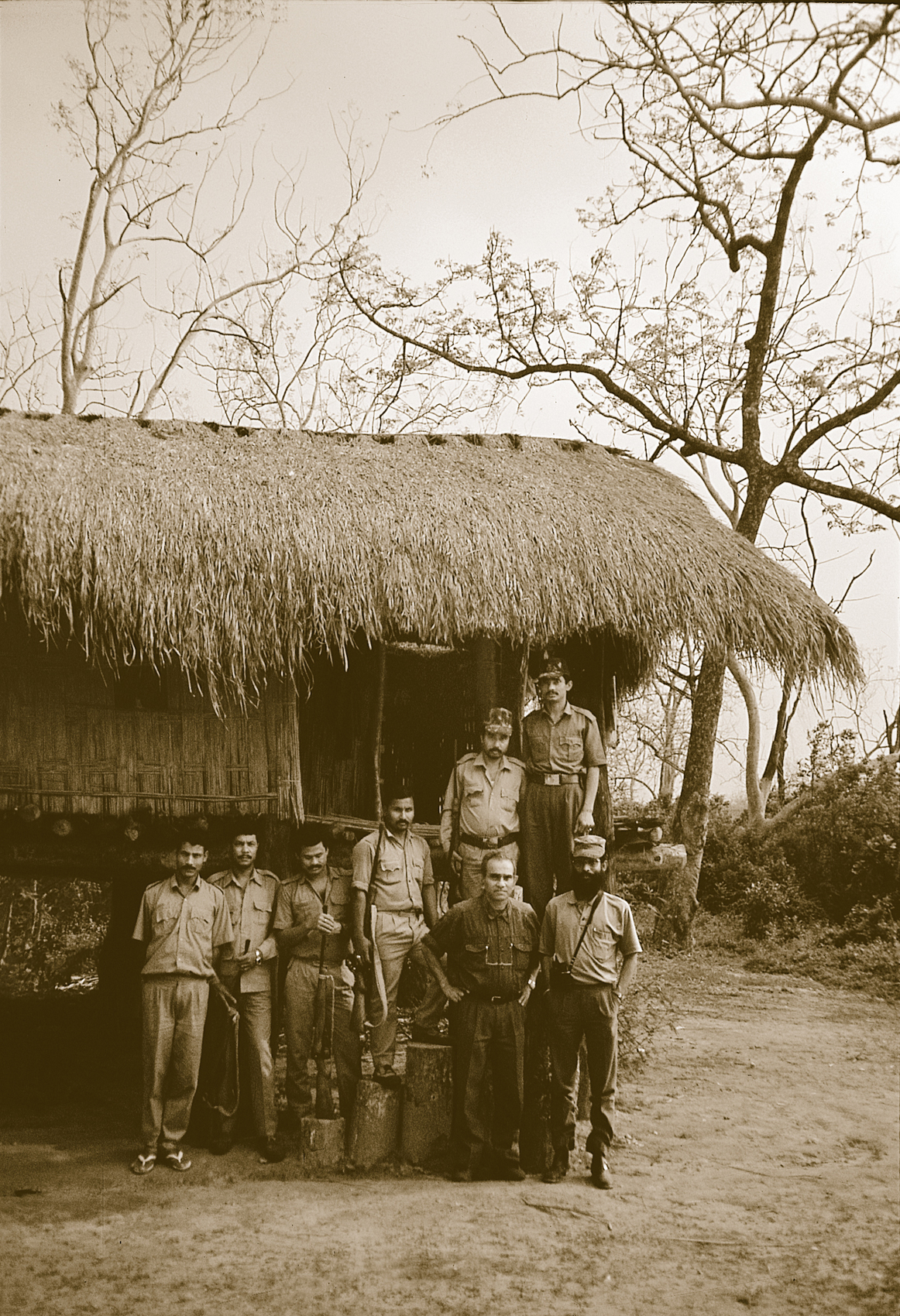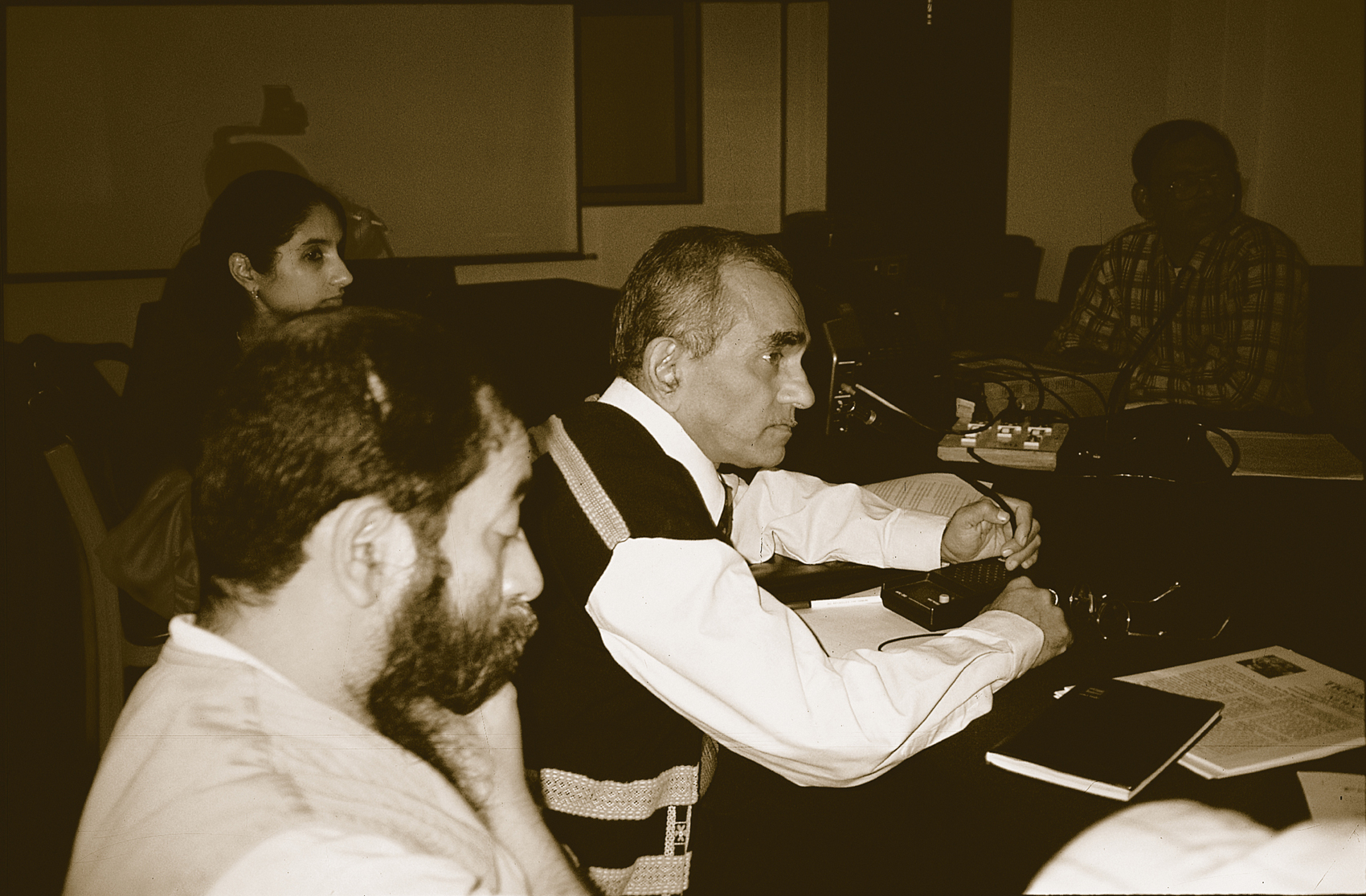Sanjoy Deb Roy (1934-1999)
First published in Sanctuary Asia,
Vol. 30
No. 4,
April 2010
By Bittu Sahgal
We must change our heroes if we are to have any chance at all of saving our planet. Across India valiant battles are silently being fought by all manner of people ranging from conservationists and forest officers to scientists and villagers. This series of brief biographical sketches of people no longer in our midst, will be placed on the Sanctuary website. Readers are invited to share personal knowledge and anecdotes about the heroes we spotlight, just as others are requested to write in with observations about the landscapes in which our heroes lived and worked. The series will rely largely on the personal knowledge and insights that people have. Our hope is that these texts might provide today’s conservationists with hindsight and perspectives into the battles they might themselves be fighting.
Tough talking. Uncompromising. Direct to the point of rude and effective to the point of being ruthless, Sanjoy Deb Roy led from the front. He earned a reputation amongst poachers as being fearless with a straight message to poaching gangs: “If you come into my forest either you will die or I will die.” He was the Director of the Manas Tiger Reserve, which he brought back from the brink of oblivion ever since it was declared a protected forest under the mantle of Project Tiger in 1973.
Brijendra Singh, Member, National Board for Wildlife and Honorary Warden, Corbett Tiger Reserve, writes: “Deb Roy, fondly known as Dada; a good, simple, honest man and officer, to whom self-respect meant everything. I remember visiting him in his one-room Guwahati home, which he shared with his family, a bear and other animals left in his charge as the head of the Assam Forest Department. Though he occupied a very senior position, airs meant little to him. When asked about any difficulties he faced, he would merely respond smilingly: ‘I am comfortable.’ A man who learned about animal behaviour through the use of the gun, he evolved to love and protect them with his life.”
An old-school wildlife protector, Deb Roy believed in foot patrols, intelligence gathering and a policy of give no quarter. Even his senior officers knew better than to try and bend him to their will. His tenure saw Manas rise from an obscure Assamese Protected Area to one of the world’s most celebrated tiger reserves. Eventually, under his iron hand, Manas was declared a World Heritage site by UNESCO.
Speaking about him with undisguised affection and admiration, Ranjit Barthakur, founder of the Balipada Foundation and the famous Wild Grass Lodge in Kaziranga, said: “Deb Roy was my friend, philosopher and guide. He introduced me to much of Assam’s natural inheritance. Sadly, today most of his warnings and fears about man-animal conflict in Assam have come true, as a direct result of unbalanced and unsustainable development at the cost of the Northeast’s biodiversity.”

Known for his uncompromising and direct ways, Deb Roy sent a clear message to poachers saying, "If you come into my forest either you will die or I will die." Both Manas and Kaziranga flourished under his watchful eye with the former being declared a UNESCO World Heritage Site due to his efforts.
Photo:Valmik Thapar
National and international awards that he won meant little to him compared to the satisfaction of keeping the animals in his charge safe. He served as the Director of the Kaziranga National Park for three years, before being promoted as Chief Wildlife Warden, a position he held for four years until he was deputed to the Central Ministry of Environment and Forests as the Inspector General of Forests (Wildlife). He retired from this job in 1992 after serving on several official committees and on four International Union of Conservation and Nature’s (IUCN) Species Specialist Groups (SSGs). Valmik Thapar, Member, National Tiger Conservation Authority, narrates an enchanting story that exemplifies Deb Roy’s jungle life. While sitting on the banks of the Manas river, it seems Deb Roy once went to sleep near a fire at night. He woke a few hours later to find a tiger, also asleep, less than five metres away, as though also enjoying the warmth of the fire!
I spent quite some time with him after his retirement when Deb Roy tearfully confessed to me, as we sat talking in his New Delhi home, that one of his greatest errors was to allow the World Bank to influence wildlife decision making through the Ministry of Environment and Forests. He said he realised too late that this mega-financial institution ended up diverting the focus of our dedicated wildlife protection staff away from protection towards ineffective rural development strategies as part of the failed Biodiversity Conservation through Ecodevelopment Project.
Amongst his deepest sorrows – he died a broken man on this account – was the dismemberment of Manas at the height of Bodo militancy when over 100 rhinos and several elephants were killed. Despite such terrible burdens that he had to carry long after he relinquished control of his precious wildernesses, Deb Roy continued to inspire wonderful visions of a life lived to the hilt. In the words of Ashish Chandola, Wildlife Cinematographer, who spent years in his company in Manas: “S. Deb Roy – the name conjures up images of fast flowing rivers, tall grasslands, the pygmy hog and a true Bengali who loved his fish and football! But most of all, the name brings a big lump to my throat as he was my dearest and most consistent of friends. My other dear friend Billy Arjan Singh, who was notoriously hard on all Forest Officers, considered Deb Roy to be the one officer he had met who was genuinely knowledgeable and dedicated to forests and wildlife with his heart and soul. Need I say more?”
He served as an advisor to the Environmental Investigation Agency’s (EIA’s) Tigers in Crisis campaign. EIA’s Debbie Banks said of Roy: “His commitment and knowledge meant he never shied from conflict with politicians and business interests that continue to take apart what remains of India’s natural heritage.”

Photo:Valmik Thapar
But perhaps Bikram Grewal, publisher and birdwatcher who really lived through thick and thin with Deb Roy puts the man in perspective best when he writes: “Easily the best man of the forest I have ever met. He grew up with my family in Gauripur in Assam and anything I know about the jungle I have learnt from him. He took me with him everywhere including his honeymoon! Literally I owe my life to him when he bravely came between me and a charging rhino in Kaziranga. Luckily, the animal veered off at the last moment missing him by a whisker. On another occasion while chasing poachers in Manas, he pinned me down in oozing mud with one hand while returning fire. We caught them!”
RIP Sanjoy Deb Roy (1934 – 1999)



